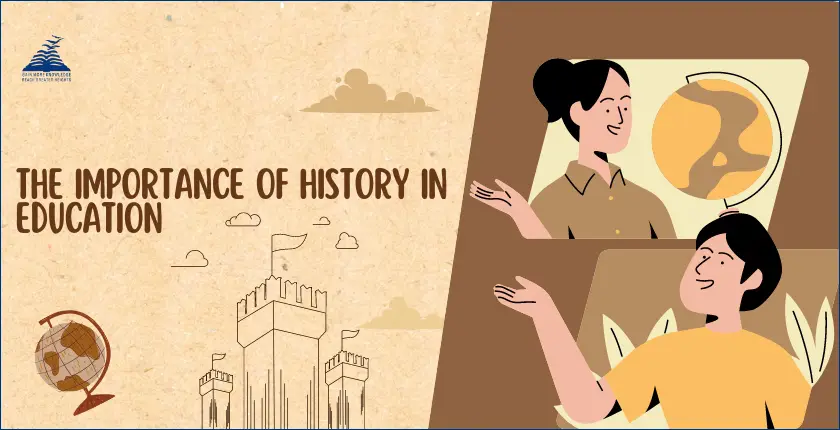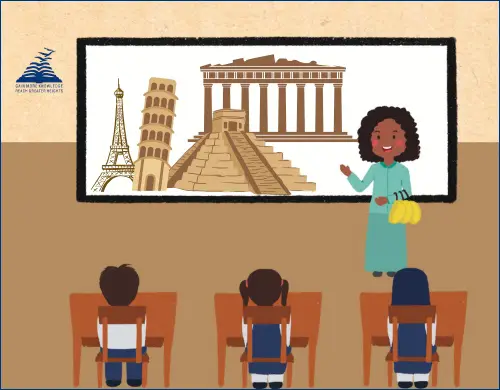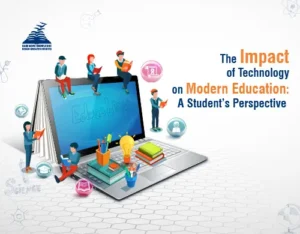History is more than just a subject in school. It’s a window into the past that reveals the patterns and events that have shaped our world today. From the rise and fall of great empires to groundbreaking scientific discoveries, history is an essential element in understanding who we are and where we come from. Discover why learning about history matters now more than ever before, as we explore the importance of history in education.
So let’s dive into the fascinating world of history! And if you’re looking for the best schools in Bangalore that prioritize teaching history effectively, keep reading till the end!
Why do we study History?
Why do we study History? It’s a question that many students ask, and the answer isn’t always clear. Some might see history as nothing more than a list of dates and events to memorize for exams, while others view it as fascinating stories about the past. At its core, studying history is crucial because it allows us to understand how our world got to where it is today. By examining how people lived in the past and how societies have evolved over time, we can gain insights into current social and political issues.
History also teaches us important lessons about human nature – both good and bad. We can learn from the successes and failures of those who came before us, helping us avoid repeating mistakes or making better decisions in similar situations. Moreover, studying history helps develop critical thinking skills by teaching us to analyze sources critically, evaluate evidence objectively, make connections between different events throughout time periods (or even countries), compare different perspectives on an issue or situation etc.
The Significance of History
History is a crucial part of our education system, and its significance cannot be overstated.
- Studying history allows us to understand the past in order to better comprehend the present. By examining historical events, we can see how they have shaped our society and culture over time.
- Learning about history helps us develop critical thinking skills that are essential for success in any field. History teaches us to analyze information and draw conclusions based on evidence, rather than simply accepting what we are told without question.
- History also has important social implications. By studying the struggles and triumphs of people who came before us, we can gain insight into issues such as civil rights, gender equality, and international relations.
- In addition to these intellectual benefits, there are practical reasons why history is important as well. It provides valuable context for understanding current events and making informed decisions about public policy issues.
- It’s clear that studying history is essential for a well-rounded education. From providing insight into social justice issues to honing analytical skills that will serve students well throughout their lives – there’s no denying that the study of history plays an integral role in shaping young minds today!
How History is Taught in Schools
The way history is taught in schools has undergone a lot of changes over the years. In the past, it was mostly lecture-based and focused on memorization of dates and events. But now, there’s a shift towards interactive and engaging teaching methods. Many teachers use multimedia tools like videos, pictures, and audio to make their lessons more interesting. They also encourage students to participate in discussions so that they can learn from each other’s perspectives at the best schools in Bangalore. Another trend is the integration of technology in history education. Students can access digital archives, primary sources, historical maps, and timelines online. This encourages them to explore independently while still staying on track with their curriculum at the best schools in Bangalore.
Additionally, many schools are moving away from Eurocentric histories and incorporating diverse voices into their lessons. They’re exploring topics like indigenous histories or women’s history that were once overlooked. These new approaches help students better understand why studying history matters as well as develop critical thinking skills for analyzing past events through different lenses.
The Benefits of Learning History
The study of history offers numerous benefits that make it an essential subject in any educational system. Learning about the past allows us to understand how our society became what it is today and how we can shape its future.
- One of the primary benefits of learning history is developing critical thinking skills.
- History provides students with opportunities to analyze, interpret, and evaluate information from various sources. By doing so, they learn to distinguish between facts and opinions and develop a more nuanced perspective on complex issues.
It also improves communication skills. Studying history involves reading, writing, speaking, and listening. Students must be able to express their thoughts clearly and coherently when presenting arguments or discussing historical events with others.
- Studying history promotes empathy for people from different cultures or backgrounds. It helps us recognize commonalities between ourselves and others while also highlighting differences that should be celebrated rather than feared.
- Understanding the lessons of history can help prevent repeated mistakes in the present or future by providing context for current events such as wars or conflicts around the world.
- Learning history provides invaluable insights into human nature and societies throughout time which are crucial for building a better tomorrow.
How to Make History More Interesting
History can be a challenging subject for many students, but there are ways to make it more interesting and engaging at the best schools in Bangalore.
- One of the most effective ways is to connect history with present-day events or issues. This technique helps students see the relevance of historical events and how they shaped our world today.
- Another way to make history more interesting is by incorporating multimedia resources such as videos, podcasts, or even virtual field trips.
- These resources provide a different perspective on historical events and make learning more interactive.
- Teachers can also use storytelling techniques that involve personal stories or primary sources that bring historical figures to life. This approach creates an emotional connection between students and historical figures, which helps them remember the lessons taught in class better at the best schools in Bangalore.
- Creating games or quizzes that relate to historical events makes learning fun while still being educational. Incorporating friendly competitions using these activities can encourage participation among students who may not be interested in traditional lectures.
- Taking field trips outside of school walls gives students hands-on experiences related to history topics studied in class.
- Visiting museums or historic sites makes real-life connections between past events and current places.
Conclusion
To sum up, history plays a crucial role in education as it teaches us about the past and helps us understand why the world is the way it is today. By studying history, we can learn from our mistakes, gain knowledge about different cultures and societies, and become more critical thinkers. While some students may find history boring or irrelevant, teachers can make it more interesting by using interactive methods such as storytelling or field trips to historical sites. Incorporating technology into lessons can enhance student engagement and understanding at the best schools in Bangalore.
Learning about history should be an integral part of every student’s education at the best schools in bangalore. It not only provides valuable insights into our past but also prepares us for the future.







